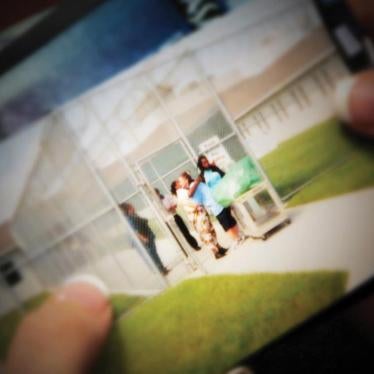(Tallahassee) – Florida legislators should approve Senate Bill (SB) 1082, which would allow judges rather than prosecutors to decide when to prosecute a child as an adult. If enacted, the proposed law would greatly reduce the number of children prosecuted in Florida’s adult courts.
Florida’s current “direct file” statute, which gives prosecutors sole discretion to charge youth ages 14 and older as adults, is one of the most expansive such laws in the United States, as Human Rights Watch documented in 2014. Over 98 percent of children in Florida’s adult court are placed there by a prosecutor with no judicial oversight. Judges cannot review or reverse that decision.
“The decision to prosecute a child in adult court carries severe consequences not only for the young person but for society as well,” said Alba Morales, US researcher at Human Rights Watch. “Florida should ensure that these critical decisions are made only after a full and fair hearing before a judge, who can take into account each child’s individual characteristics and capacity for change.”
Multiple studies have shown that children who are prosecuted in the adult system reoffend more quickly and go on to commit more serious crimes than those who are kept in the juvenile justice system.
“In adult court, they want to lock us up,” one Florida boy told Human Rights Watch. “In juvenile court they want to help us make better choices.”
Children charged as adults are held in Florida’s adult jails pending trial. Once convicted, a child must live with the lifelong consequences of an adult felony conviction instead of the rehabilitation provided in Florida’s juvenile system.
SB 1082, introduced by State Senator Thad Altman, would replace the direct file process with an adversarial hearing in which a judge makes the final decision about whether a child should be tried as an adult, after considering arguments from both the prosecution and the defense. The proposed law would make children younger than 16 ineligible for prosecution in adult court, and limit the crimes for which children 16 and older could be tried as adults for violent felonies. Finally, the law would prohibit holding children in adult jails before trial, keeping them under the supervision of the Florida Department of Juvenile Justice.
Under the proposed law, judges would weigh the seriousness of the crime in addition to other factors. Most youth tried in adult court in Florida are accused of nonviolent crimes. In 2012 and 2013, 60 percent were there for nonviolent offenses, according to data Human Rights Watch analyzed. In one case, for example, a 16-year-old was prosecuted in adult court for stealing two laptops from a classroom. In another, a 17-year-old was charged with burglary as an adult for breaking into the back porch of a home and taking a printer that was stored there.
Children who commit crimes can and should be held accountable, but prosecuting them in adult court harms both the child and society at large. Children are both developmentally less mature than adults and more capable of rehabilitation, which is the primary purpose of the juvenile justice system.
The Convention on the Rights of the Child, to which the US is a signatory, provides that a “variety of dispositions, such as care, guidance and supervision orders; counselling; probation; foster care; education and vocational training programmes and other alternatives to institutional care shall be available to ensure that children are dealt with in a manner appropriate to their well-being and proportionate both to their circumstances and the offence.”
“Sentencing children to the lifetime of consequences that felony convictions carry, including sharply reduced job opportunities, is counterproductive and excessive,” Morales said. “Common sense tells us that children are different. By passing this law, Florida legislators would take a sensible step toward creating a justice system that acknowledges those differences.”






